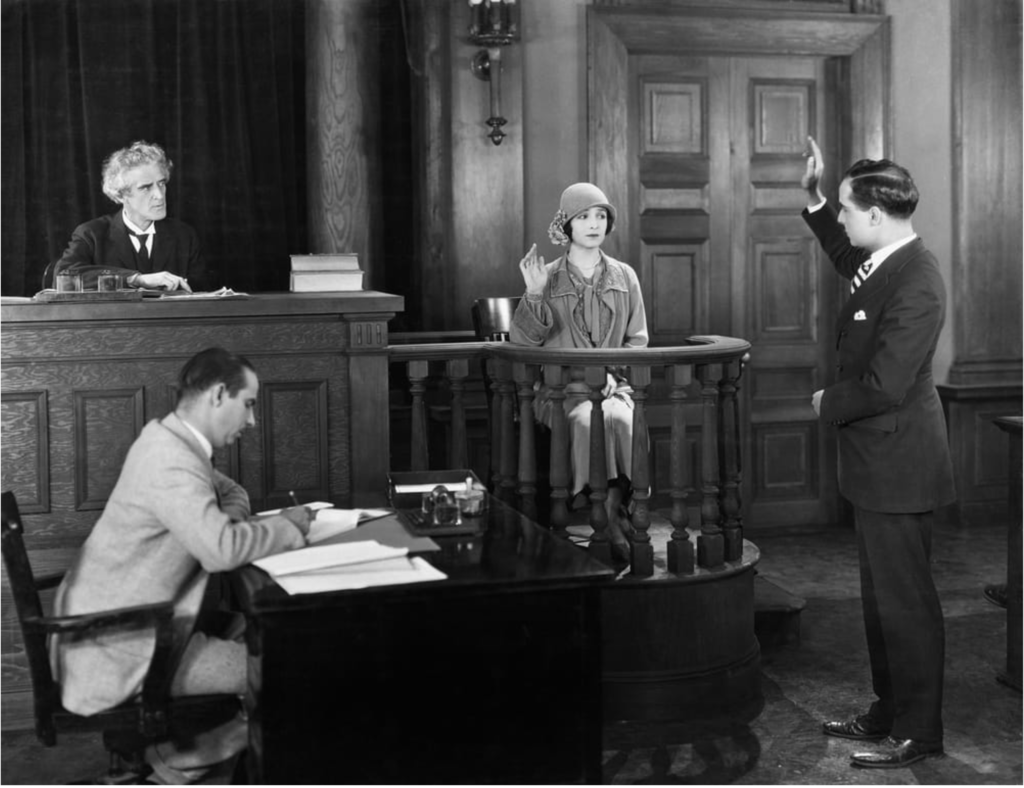Why Don’t People Agree With The Evidence?
Why don’t people see my side of things? When engaging with people on important issues, it can be frustrating when I present a well-thought-out case for my position and the person I am talking to “just doesn’t get it”. We could be talking about Christianity, politics, public policy, or any other number of current hot-button topics. I could present a logically flawless case. Airtight. The facts, evidence, and data are overwhelmingly on my side. The claims are undeniably true; therefore, the conclusion must be true. And yet, the person I am having a conversation with still won’t admit that what I am saying is right.
Why is that? Why can I present an easy-to-follow, completely rational position, and yet people won’t agree with me? At times, it can be extremely frustrating. When I first got started in Christian case-making and apologetics, I thought the only reason people were not Christians was that they hadn’t been given a good enough case to become one. And, if I gave the right evidence for Christianity -WHAM! Instant conversion.
But that rarely happens. So, I started to get frustrated with the whole enterprise. And, I wanted to give up. Either I’m not good at making the case, or people are just too bull-headed to listen.
Then, I learned something that completely changed my mind. It took a lot of pressure off me having to convince every person I spoke to. It gave me a view behind the scenes into what was going on with the other side of the conversation; what was going on with the person I was talking to. It was like a weight was lifted from my shoulders. With the pressure taken off, it allowed me to relax, be patient with people, and keep the conversations going. What did I learn?
People often “shun” the truth.
Now, what do I mean by that? It’s really just a clever play on words regarding three reasons why people often don’t agree with you, no matter how good your reasons are. Because, make no mistake, when people don’t agree with you, they have their reasons, too. But, they aren’t always the kind you think. When people don’t agree with a truth claim, it is usually for one of these three things: either they have rational reasons, they have emotional reasons, or there are volitional reasons.
This realization wasn’t something I came to all on my own. I first heard about it from J. Warner Wallace. As a cold-case homicide detective, he spent a career trying to convince juries of what the evidence he collected inferred about the events of the case in front of them. He has also spent a lot of time engaging with others on the truth claims of Christianity. Sometimes – often times – two people can look at the same evidence and come to different conclusions. And it’s usually for one of those three reasons.
RaSHUNal
People who have rational reasons for rejecting a truth claim have honestly interpreted the evidence differently from you. Or, they don’t have all of the information you have. These are the kinds of people we hope to encounter because if we can fill in the gaps of their knowledge, we can hopefully get them moving on their journey. These are the people most of us who call ourselves apologists prepare for. Unfortunately, they’re the ones we are least likely to run into.
EmoSHUNal
As much as we want to proclaim that man is a rational being, the truth is, he is also emotional. And emotions often get in the way of rational thinking. For many people, Christianity comes with a lot of baggage. They may have had a bad experience at a former church. Or, they know Christians who don’t act very “Christian-like”. For them, becoming a Christian might be like going back to a restaurant they got food poisoning from one time. Even if the restaurant offers to let you inspect the back of the house where the meat is kept, watch the food being cooked, and examine their sanitation policies, chances are you still probably wouldn’t go back. It literally left a bad taste in your mouth.
On a side note, this is why living out the gospel is so important. Most people won’t listen to a thing you have to say if you have bad character. The first encounter most people have with Christianity is with Christians. So, if they see people who call themselves Christians acting vulgar, obnoxious, dishonest, or mean-spirited, why would they want to be any part of that?
VoliSHUNal
The third category of reasons people won’t agree with a truth claim has to do with someone not wanting a claim to be true. There are two different types of people in this group, but it basically boils down to the same objection: the cost is too high.
The first group of volitional objectors are the ones who can often be heard saying, “I just want to live my life the way I want to live my life”. They think that becoming a Christian means a life having all the fun sucked out of it. All they see about Christianity is a bunch of unthinking rule followers, and they want no part in that, thank you very much. Or, they’ve developed a lifestyle counter to what Christianity teaches, and they don’t want to give that up.
These people aren’t on a truth quest; they’re on a happiness quest. If something causes them discomfort, it’s not good. If something makes them happy, it’s good. The gospel starts off with “you’ve messed up, and you need help”. Not a very attractive opening statement to someone who thinks they have it all handled on their own.
Frankly, this is where most objectors fall. I know I did. Before I accepted that Christianity was true, I had a serious problem with people telling me what to do or how I should live my life. I thought I knew what being a good person looked like, and I didn’t need anyone to tell me how to do that. I was an independent thinker, after all.
If you want to see an example of a volitional objection, watch Frank Turek in his Q&As when he asks some people if Christianity were proven to be true, would you become a Christian, and they flat out say no. This is not a logical objection; this is a willful objection. They don’t want Christianity to be true.
For the second group in this category, there is too great a social or familial price to pay if they were to agree with you. Not only would they have to admit to themselves they were wrong, but they would also risk alienating their peer group and/or their family. That’s a BIG deal. We’ve seen all too well recently the kind of vitriol that gets unleashed against people on opposing sides on places like Facebook, Twitter/X, and YouTube. Simply changing your mind on a topic means that you would now be subject to all of that.
Being very public about your positions can also get you fired or blacklisted in certain industries. People have a lot at stake when they come out on a topic these days. Losing relationships is one thing. But if you have a family to provide for, and you know there is a possibility of hostility in the workplace or even termination, you might think twice before coming out on a particular side of something. Or announcing that you are now a different party or a member of a different belief system.
This gets taken to a whole different level in countries where religious freedom is not a right protected by law. In places like Egypt, if you are not a Muslim, many opportunities are closed to you. In many Muslim nations, it is against the law to convert someone from Islam to another belief system. So, if you are a Christian in some Muslim countries, and you try to convince your Muslim friend that Christianity is true, you could end up in jail. Or worse. In some areas, Muslims who become Christians are executed. So, a Muslim has to weigh the cost of losing their livelihood, their possessions, their family, and even their own lives in some cases against admitting that Christianity is true. That’s a pretty weighty decision to have to make.
Once I realized there was an explanation for why people would reject something true, it was a game-changer for me in how I hold conversations. Now that I have a way to understand why people will reject a truth claim, I can use this to help me know how to deal with their objections. In the next article, we’ll take this knowledge about why people reject Christianity and use it to help us continue making our case. And how we deal with these objections is something many apologists don’t prepare for
Share This Story, Choose Your Platform!
latest video
news via inbox
Subscribe and never miss an update!








I like when you said how most people think that were just a bunch of “unthinking rule followers” or when people feel as if Christianity sucks the fun out of everything. I think its hard when people haven’t experienced that much negative stuff in their life and they’ve been living how they have wanted to live for so long. When they see that following God takes away from what they want to do then they get confused because it takes away their enjoyment that they have already experienced not following God. Then they think Christianity is dumb and a goody two shoes.
Hi Veronica,
Most people are on a happiness quest, not a truth quest.
Thanks for your comment
i think that people are stubborn to see the evidence as evidence and how they don’t wanna leave there worldly views and actions. also how they just want a reason to reject God
It can be frustrating to deal with. All we can do in the meantime it let them know that we care, and make sure our actions reflect the same.
[…] we discussed 3 reasons people will not agree with a truth claim – they have rational reasons, they have emotional reasons, or they have volitional reasons. […]